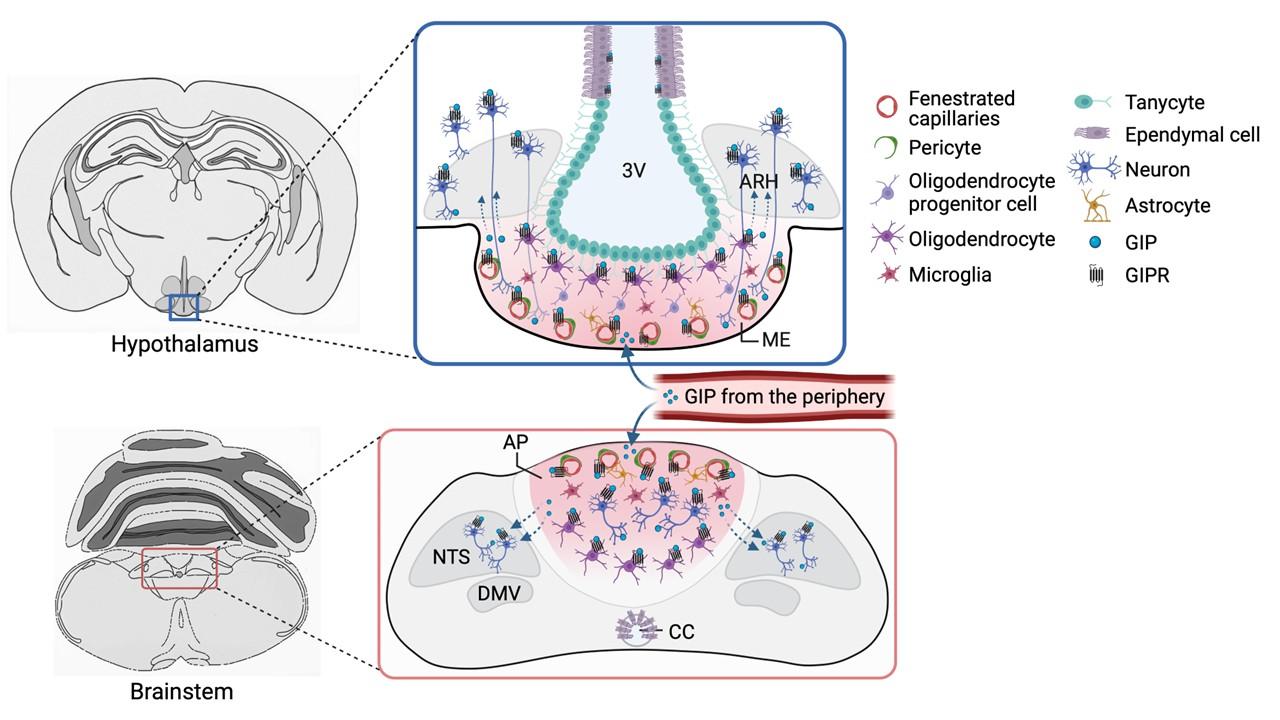
Submitted by aml95 on Mon, 07/04/2025 - 10:44
A new review article by Paula-Peace James-Okoro, PhD student with the Gribble/Reimann group, and colleagues at the IMS-MRL, which was recently published in Frontiers in Endocrinology, explores how the Glucose-dependent insulinotropic polypeptide receptor (GIPR) contributes to the regulation of appetite, body weight, and metabolism.
GIP is one of two incretin hormones playing key roles in the control of food intake, nutrient assimilation, insulin secretion and whole-body metabolism.
With dual GIP/GLP-1 receptor agonists like tirzepatide, the active agent in MounjaroTM, showing strong promise in treating obesity and type 2 diabetes, understanding how GIPR works in the brain is key to improving future therapies that maximise metabolic benefits while minimising side effects.
This comprehensive review summarises current ideas on how GIPR signalling may influence eating behaviour and energy balance. It discusses the paradoxical finding that both activating and blocking this receptor can lead to beneficial metabolic effects and explores what might underlie the better weight loss seen with tirzepatide compared to GLP-1R-only agonists, including anti-nauseating effects and possible changes to brain access involving non-neuronal brain and vascular cells, which are currently under investigation.

